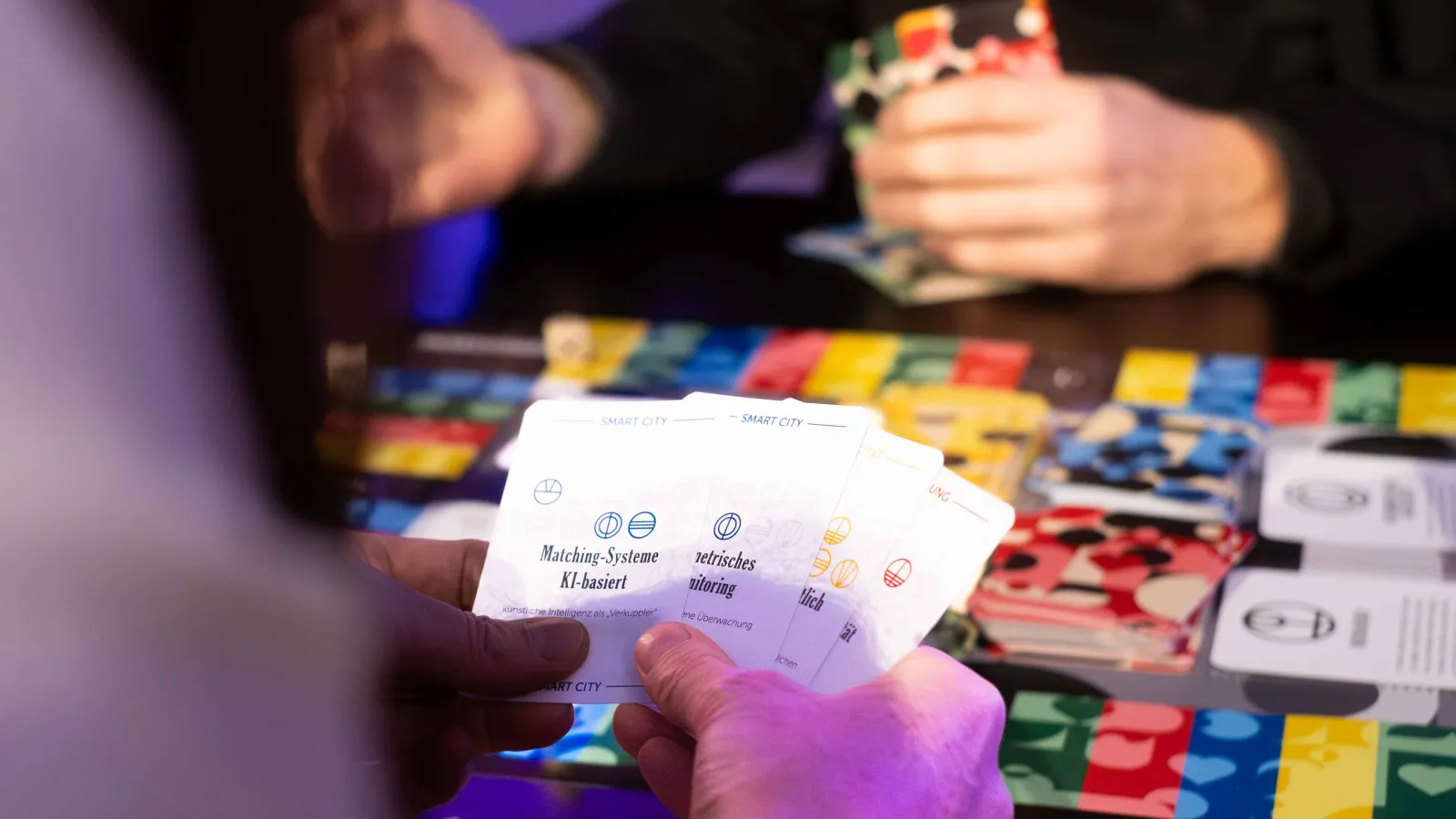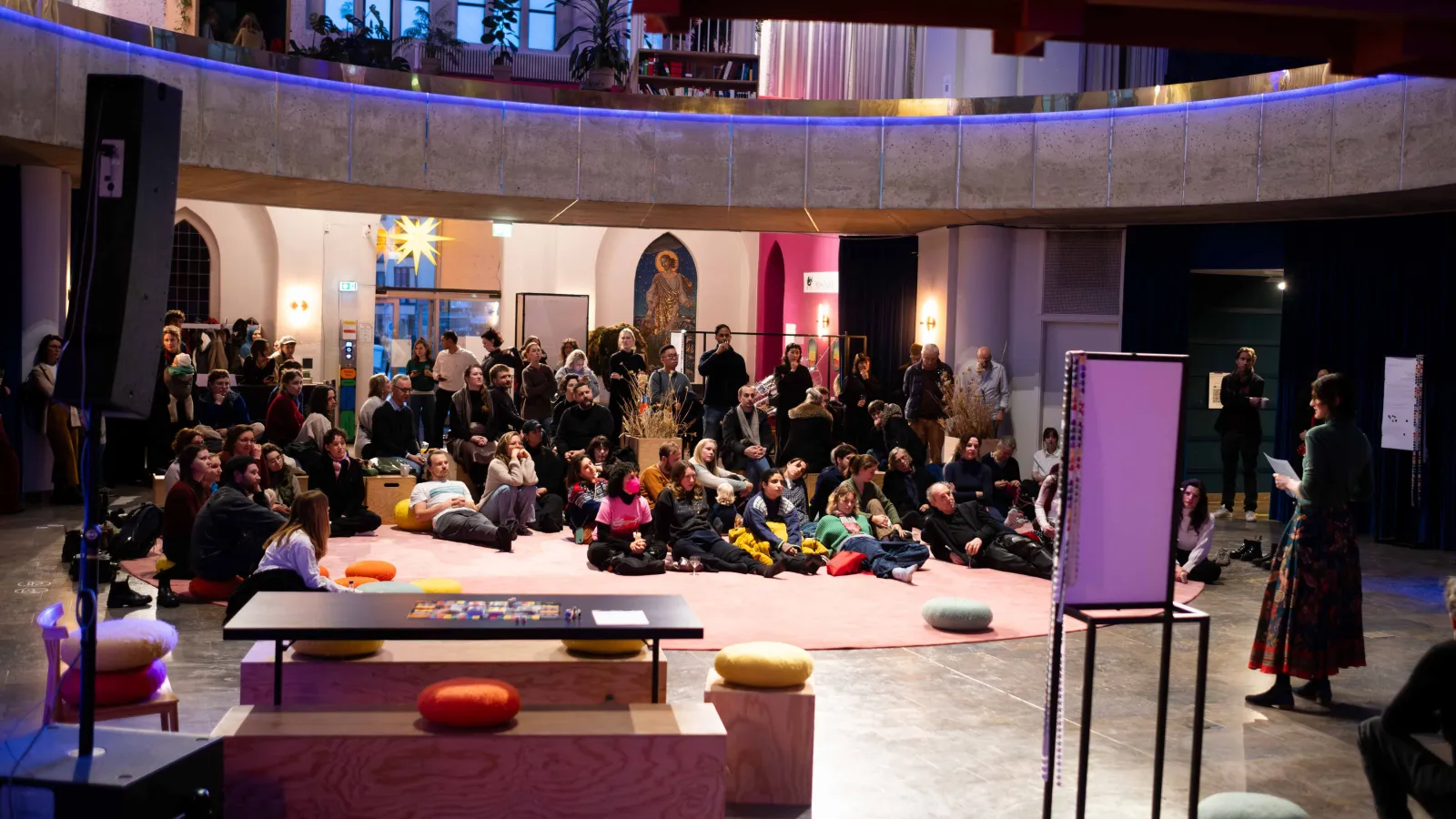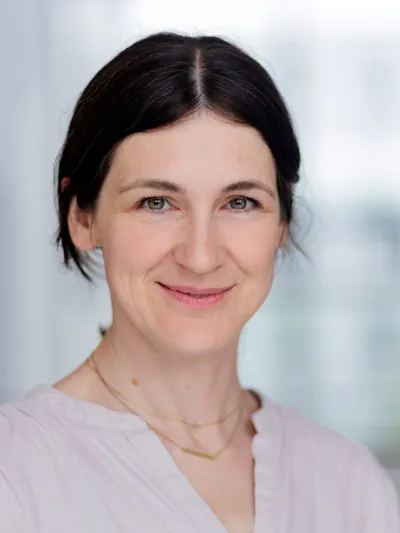Retrospective
Review of the "Zukünfte der Liebe" Event

How could love be lived in the city of the future? What kind of togetherness do we want in a digitalised society? With these questions, lecturers and students from the Departments of Design and Social and Educational Sciences celebrated the diversity of love on the 14th of February 2025 and presented the results of the course "Love in the city of the future".
Academic impulses: Love and community in urban society
After a welcome from cooperation partner Felix von Plötz, Startbahn Berlin, Prof. Myriel Milićevic introduced the event with a brief review of the semester course and emphasised the great importance of imagination in relation to the future.
Dr. Jasmin Jossin then spoke about the diversity of love – with an understanding of love as an active practice for which we bear responsibility. Referring to neurobiological studies, she discussed how love can take many different forms beyond romance, triggering similar physical processes and influencing each other. As a possible common factor, she cited findings from recent attachment research, according to which human self-love and the ability to bond are not only characterised by experiences in the immediate environment, but also by social groups and communities, social structures, culture and global conditions. Thus, consumption patterns, patriarchal structures and other social inequalities influence love over time – which makes love a public, political issue. The keynote ended with an outlook on the opportunities for the "Great Transformation" that can arise if we as a society treat different forms of love more equally and inclusively and live love as an ethical attitude.
Katja Stephan, lecturer in social work, then highlighted the great importance of neighbourhoods for connecting people: By building bridges between different groups and ensuring good living conditions in a community, community work also establishes closeness between people and promotes loving relationships. As the living environments of many city dwellers today are more "decoupled" than in the past, more places are needed in the future to bring people closer together again – like the innovative Genezarethkirche in Neukölln, where the event took place.
Circuit training on the future of love
Afterwards, things got speculative: at five stations of a "circle training of the future", visitors were able to visualise, empathise with and help design visions of different forms of love: In the multi-sensory "Journey to the Self", for example, a thought journey introduced the mindfulness practices of different cultures and guests imagined a future in which people's self-love is a tangible reality over freshly brewed tea. In the game "Mono x Poly", visitors played out ambivalent futures of romantic love and discussed which visions of society would be more or less desirable: from deterministic digitalists to Adamists and Eveists, from organic cyber units to urban poly communes. In the "Federal Office for Friendship", the citizens of the future in attendance received a wide range of advice and programmes for strengthening friendships. They also voted on the extent to which friendships should be controlled by the authorities in order to give friends similar benefits to spouses. The journey continued to "The fragmented future" in the year 2050, where players created amusing scenarios for the revival of abandoned places such as petrol stations, casinos and shopping centres. In order to practise the lost ability for closeness and empathy for fellow human beings, they exchanged loving thoughts with others at the soul deposit machine. Finally, the guests asked themselves: What kind of nature would we miss as future inhabitants of Mars? Orders could be placed at the "Interplanetary Post Office" – from the Himalayas to allotment gardens.
Supporting programme and thanks
Inspiration and encounters were also provided by a colourful supporting programme: with live music on the grand piano by David Can Erekul, an exchange format moderated by FHP student Marie Grau, a "picture love" photo project, colourful bread on a stick around the campfire, results from the project week course "Liebesschutzgebiete", a sing-along performance by SingSisySing and dance music by Pelle Boi to round things off.
Many thanks to the Equal Opportunities Council for their support through the "Gender in Teaching" programme, to the Neukölln Community Foundation for their additional funding, to Startbahn Berlin for the wonderful cooperation and to Jérôme Jossin for the beautiful photos. Finally, we would like to thank all students from the semester course "Love in the City of the Future" for their diverse and committed contributions to this event!




